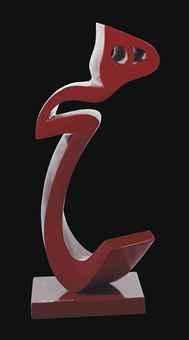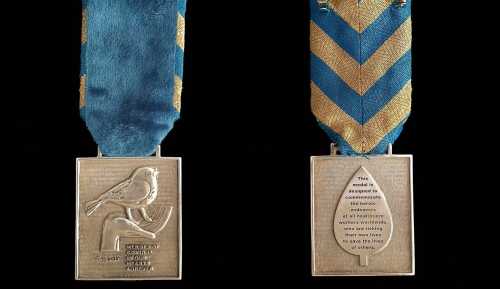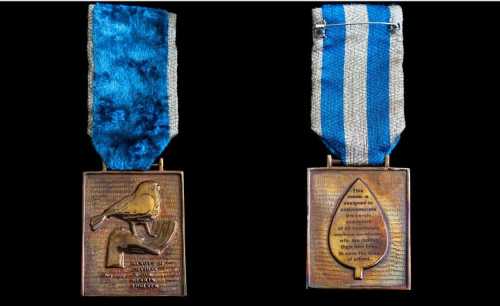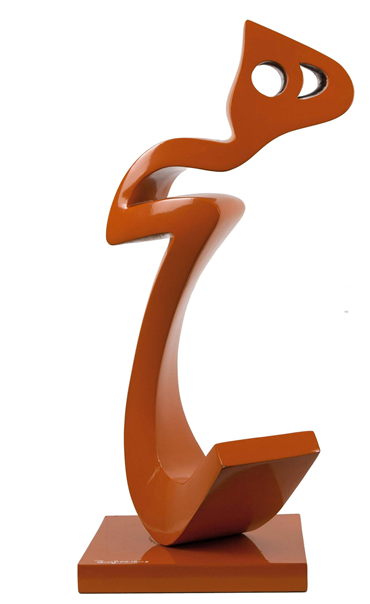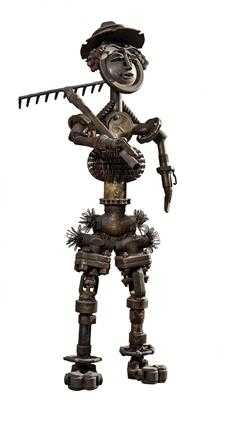- Heech
- Fiberglass on iron base
- Sculpture
- 40 * 35.5 * 90 cm
- Editions: 25
- Edition No. 17
- signed, dated and numbered 'Parviz, 06 17/25' (on the lower left of the base)
Artwork Description
"Nothing" is an aspect of God who is in all things and therefore in everything. The "nothing" is not God, but is a place where God could be in his purest state.'
(Parviz Tanavoli)
Composed of three letters in Persian language, the single word Heech means 'nothing'. It reflects the feelings of unworthiness, frustration and ineffectiveness which haunt modern man and permeate so much of the writing of contemporary literature. It also renders in a single word the mystical belief that recognizes that God is permanent, while everything else has no true substance, bound to vanish; the other seeks dissolution of the individual personality to find union with the God.
Tanavoli's use of the Heech underscores the transforming power of his art. In the West, existentialist convention encourages us to take 'nothingness' as a synonym for despair; but the Heech in Tanavoli's work is more nearly synonymous with creativity itself: it is the void filled by the artist's imagination, the 'nothing' that through his shaping hand becomes 'something'.
Mysticism enhances Tanavoli's fascination with the Heech, but as he himself acknowledges, he was also drawn to its calligraphic shape because of its resemblance to the human body. If the word itself suggests melancholy, Tanavoli's Heech sculpture is a joyful work.
(Parviz Tanavoli)
Composed of three letters in Persian language, the single word Heech means 'nothing'. It reflects the feelings of unworthiness, frustration and ineffectiveness which haunt modern man and permeate so much of the writing of contemporary literature. It also renders in a single word the mystical belief that recognizes that God is permanent, while everything else has no true substance, bound to vanish; the other seeks dissolution of the individual personality to find union with the God.
Tanavoli's use of the Heech underscores the transforming power of his art. In the West, existentialist convention encourages us to take 'nothingness' as a synonym for despair; but the Heech in Tanavoli's work is more nearly synonymous with creativity itself: it is the void filled by the artist's imagination, the 'nothing' that through his shaping hand becomes 'something'.
Mysticism enhances Tanavoli's fascination with the Heech, but as he himself acknowledges, he was also drawn to its calligraphic shape because of its resemblance to the human body. If the word itself suggests melancholy, Tanavoli's Heech sculpture is a joyful work.
More lots by Parviz Tanavoli
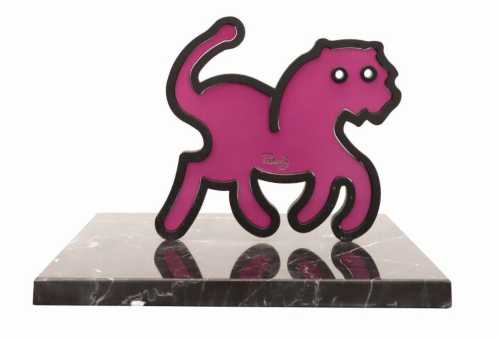
Untitled
Estimation
1,500,000,000﷼
2,481 USD
-
2,000,000,000﷼
3,309 USD
Realized Price
1,400,000,000﷼
2,316 USD
20%
Sell at
Sale Date
Smart Auction
-
2 August 2024
Realized Price
127,830 USD
Min Estimate
68,654 USD
Max Estimate
96,185 USD
Average Artwork Worth
+73.836%
Average Growth of Artwork Worth
Sales Performance Against Estimates
Average & Median Sold Lot Value
2022 - 2026
Performance vs. Estimate
2022 - 2026
Sell-through Rate
2022 - 2026
